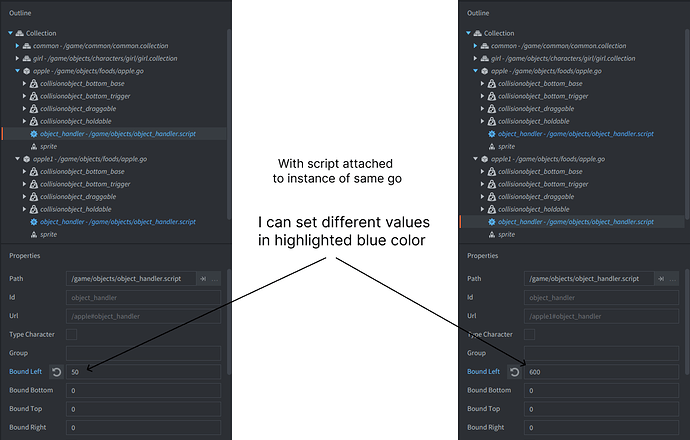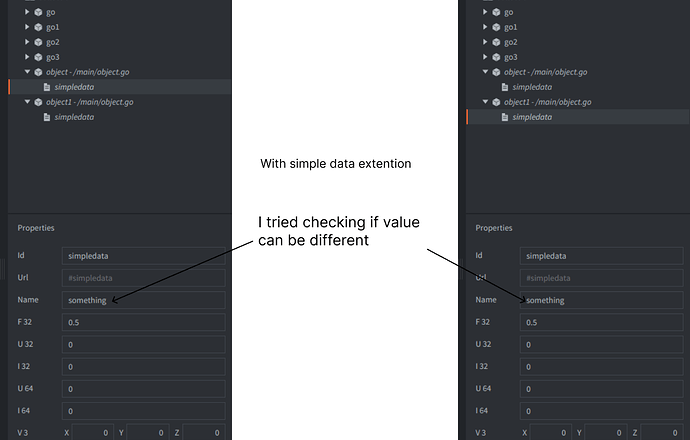I’m looking for different solutions how I will setup my project that involves so many objects that will conflict 1024 script limit for sure. If I will not attach script to every game object but still I need a way to set some define data values to game objects that I can access with one manager script to make behave according to pre created data values.
For example, whether this object should draggable, holdable edible and so on.
I came across this extention GitHub - defold/extension-simpledata: Example how to bring custom data to a game object
it really suits for my situation but it has some limit.
In script, we can set different values(highlighted in blue) to game object property of game object instance
But this is something not possible with simple data extension, I can’t set different values
Also what is possibility of modifying this extension for this case, or can I add other types of data value boolean. As I have looked through simple data extension project and I have never touch c++ and clojure before. So how complex this can be.


